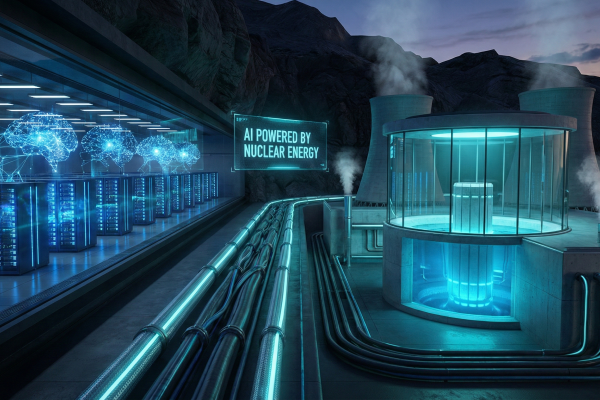October 11th, 2022 | 13:14 CEST
Demography and electricity - two birds with one stone: BASF, TubeSolar, JinkoSolar
It will not be long before there are more than 10 billion people in the world. The United Nations, for example, estimates that this could be possible in just over 30 years. But how can we meet the demands of so many people and satisfy their hunger for food, energy and prosperity? We present three shares that aim to provide answers to some of these questions and carry out an investment check.
time to read: 3 minutes
|
Author:
Nico Popp
ISIN:
BASF SE NA O.N. | DE000BASF111 , TubeSolar AG | DE000A2PXQD4 , JINKOSOLAR ADR/4 DL-00002 | US47759T1007
Table of contents:

"[...] Recovery rates of more than 90% rare earths are another piece of the puzzle on the way to the economic viability of our project. [...]" Craig Taylor, CEO, Defense Metals
Author
Nico Popp
At home in Southern Germany, the passionate stock exchange expert has been accompanying the capital markets for about twenty years. With a soft spot for smaller companies, he is constantly on the lookout for exciting investment stories.
Tag cloud
Shares cloud
BASF: Long-term success, short-term failure
BASF from Ludwigshafen is known worldwide as a chemical giant. However, not many people know that the Company is also closely linked to the agricultural industry. The Palatinate-based company generates around 10% of its sales with agricultural chemicals and a further 8.2% in the "Nutrition and Care" division. In the field of agricultural chemicals, BASF is even considered the world leader and scores with insect repellents and other helpers for the agricultural industry. Even if crop protection products do not have a good reputation in this country, their use in monocultures, i.e. large cultivated areas without mixed planting, is considered a must in order to secure yields and keep agriculture profitable on a large scale.
In view of the growing world population and the increasing demands of climate change, it will be even more critical in the future to protect yields and secure food supplies. While a move away from monocultures in some areas could also be a response to the challenges of climate change, there is likely to be a market for BASF's agricultural products for some time to come. By contrast, the situation is much worse in the basic chemicals sector. Here, BASF is suffering from logistics problems and rising energy costs. The Company is also still heavily dependent on fossil fuels. Consequently, BASF is not yet seeing any fantasy around demography and the agricultural economy of the future.
TubeSolar: Double harvest for farmers - and shareholders?
The situation is different at TubeSolar. The German company offers answers to the current energy crisis and, at the same time, opens up new sources of income for farmers. How does it work? It allows farmers to roof existing fields with photovoltaic systems without sacrificing crop yields. Farms then harvest crops or vegetables on the ground and generate electricity above them. TubeSolar's tubular modules allow light and water to pass through to the plants while providing yields similar to those of traditional flat modules. Thanks to the partial shading of cultivated areas, water requirements are even supposed to be reduced, and plants are protected from excessive solar radiation. As we remember, just two months ago, many plants burned in the hot sun.
The Company TubeSolar emerged from the former fluorescent tube production of Osram in Augsburg and is located on the former premises of Osram in Augsburg. The technology is patented and has been in use since 2019. TubeSolar has been funded by the Bavarian Ministry of Economic Affairs since 2020. Since its start on the stock exchange, TubeSolar's share has not been a success story, but it has recently shown signs of stabilization. The decision to increase capital is likely to have contributed to this. The Company wants to raise around EUR 8 million to drive the business forward. The good thing about this is that shareholder BF Holding GmbH guarantees to take over all new shares not subscribed by existing shareholders. Given the investment story, investors can make a note of TubeSolar. After the completion of the capital measures, the Company could take off again thanks to its convincing business model.
JinkoSolar: Top dog with problems
A much bigger player than TubeSolar is the Chinese top dog JinkoSolar. The share, however, has run into some trouble in the wake of the new tensions between East and West. In addition, even companies like JinkoSolar have limited ability to pass on rising commodity prices to customers in a competitive market. The situation is different at TubeSolar: Thanks to its tube modules, the Company has almost a unique selling proposition but arguably much less competition. Nevertheless, JinkoSolar remains one of the most important players in PV modules. The Chinese stand for outstanding quality and large quantities. This is the key to long-term success, even under difficult conditions. Currently, the share is in an exciting situation. If the value does not hold above the support zone of EUR 50, it could go down further. The share is currently not pushing through.
If you want to bet on demographic factors and long-term trends in general on the stock market, you have to be careful that these developments are not overshadowed by short-term processes. At JinkoSolar, these include dwindling margins and geopolitical tensions. At BASF, it is the energy crisis in general. At TubeSolar, the share price seems driven more by the fantasy of the innovative business model. If there is success news here, the current valuation of around EUR 50 million could quickly become moot. However, if no customers are found, there is also downside risk. In spring 2023, TubeSolar will launch a pilot project in the Hallertau hop-growing region near Munich, which is intended to increase agricultural yields and generate electricity.
Conflict of interest
Pursuant to §85 of the German Securities Trading Act (WpHG), we point out that Apaton Finance GmbH as well as partners, authors or employees of Apaton Finance GmbH (hereinafter referred to as "Relevant Persons") may hold shares or other financial instruments of the aforementioned companies in the future or may bet on rising or falling prices and thus a conflict of interest may arise in the future. The Relevant Persons reserve the right to buy or sell shares or other financial instruments of the Company at any time (hereinafter each a "Transaction"). Transactions may, under certain circumstances, influence the respective price of the shares or other financial instruments of the Company.
In addition, Apaton Finance GmbH is active in the context of the preparation and publication of the reporting in paid contractual relationships.
For this reason, there is a concrete conflict of interest.
The above information on existing conflicts of interest applies to all types and forms of publication used by Apaton Finance GmbH for publications on companies.
Risk notice
Apaton Finance GmbH offers editors, agencies and companies the opportunity to publish commentaries, interviews, summaries, news and the like on news.financial. These contents are exclusively for the information of the readers and do not represent any call to action or recommendations, neither explicitly nor implicitly they are to be understood as an assurance of possible price developments. The contents do not replace individual expert investment advice and do not constitute an offer to sell the discussed share(s) or other financial instruments, nor an invitation to buy or sell such.
The content is expressly not a financial analysis, but a journalistic or advertising text. Readers or users who make investment decisions or carry out transactions on the basis of the information provided here do so entirely at their own risk. No contractual relationship is established between Apaton Finance GmbH and its readers or the users of its offers, as our information only refers to the company and not to the investment decision of the reader or user.
The acquisition of financial instruments involves high risks, which can lead to the total loss of the invested capital. The information published by Apaton Finance GmbH and its authors is based on careful research. Nevertheless, no liability is assumed for financial losses or a content-related guarantee for the topicality, correctness, appropriateness and completeness of the content provided here. Please also note our Terms of use.




